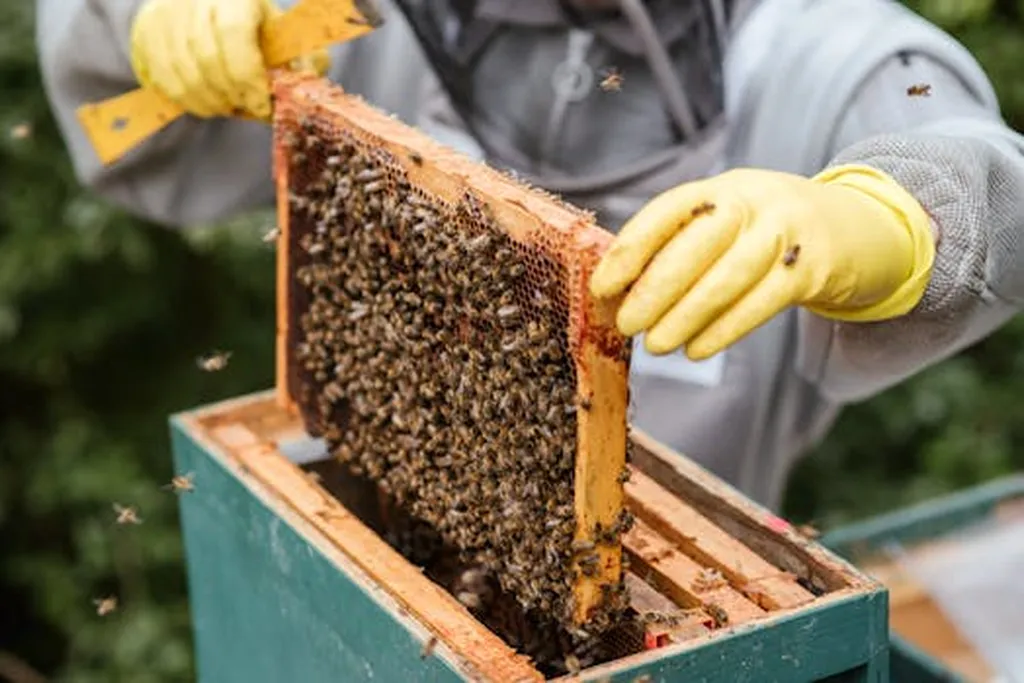In the heart of Jordan, a sweet solution to a pressing environmental challenge is brewing, quite literally. Researchers at Al-Balqa Applied University have discovered a novel way to synthesize magnetite nanoparticles using Jordanian honey, offering a greener alternative to traditional chemical methods. This innovative approach, led by Madleen Al Odeh from the Department of Chemistry, not only addresses environmental concerns but also opens up new avenues for heavy metal removal in wastewater treatment, a critical need for the energy sector.
The study, published in the English-language journal “Materials Research Express,” details the eco-friendly synthesis of magnetite (Fe₃O₄) nanoparticles using honey as a reducing and stabilizing agent. Traditional methods of nanoparticle synthesis often involve hazardous chemicals, posing risks to both human health and the environment. Al Odeh’s research provides a sustainable alternative that leverages the natural properties of honey.
“Honey has been used for centuries for its medicinal properties, but its potential in nanotechnology is a relatively new discovery,” Al Odeh explained. “By using honey, we can produce nanoparticles that are not only effective but also environmentally friendly.”
The process involves co-precipitation of ferric and ferrous chlorides in a 2:1 molar ratio, with honey added as a natural reducing and stabilizing agent. The resulting nanoparticles were characterized using various techniques, including X-ray diffraction (XRD), X-ray fluorescence (XRF), and Fourier-transform infrared spectroscopy (FTIR). Scanning electron microscopy (SEM) and transmission electron microscopy (TEM) revealed spherical particles with an average size of 54 nm and a specific surface area of 64 m²/g, indicating high adsorption capacity.
One of the most compelling aspects of this research is its potential impact on the energy sector. Heavy metal contamination is a significant concern for industries such as oil and gas, where wastewater treatment is a critical process. The magnetite nanoparticles synthesized using honey demonstrated exceptional adsorption capabilities, achieving complete removal of arsenic and 98% removal of lead from contaminated water.
“This research is a game-changer for the energy sector,” said Al Odeh. “The ability to efficiently remove heavy metals from wastewater not only improves environmental safety but also ensures compliance with regulatory standards, which is crucial for the energy industry.”
The study also identified chemisorption as the main mechanism behind the nanoparticles’ high adsorption capacity. This finding could pave the way for further research into the use of natural materials in nanotechnology, offering a sustainable and cost-effective solution for various industrial applications.
As the world continues to grapple with environmental challenges, the need for green technologies has never been more urgent. Al Odeh’s research offers a promising solution that aligns with the growing demand for sustainable practices in the energy sector. By harnessing the power of natural materials like honey, we can create innovative technologies that are not only effective but also environmentally responsible.
The implications of this research extend beyond the energy sector. The use of honey in nanoparticle synthesis could inspire further exploration of natural materials in nanotechnology, leading to the development of new and sustainable solutions for various industries. As we move towards a greener future, the work of researchers like Madleen Al Odeh serves as a beacon of hope, demonstrating that innovation and sustainability can go hand in hand.

